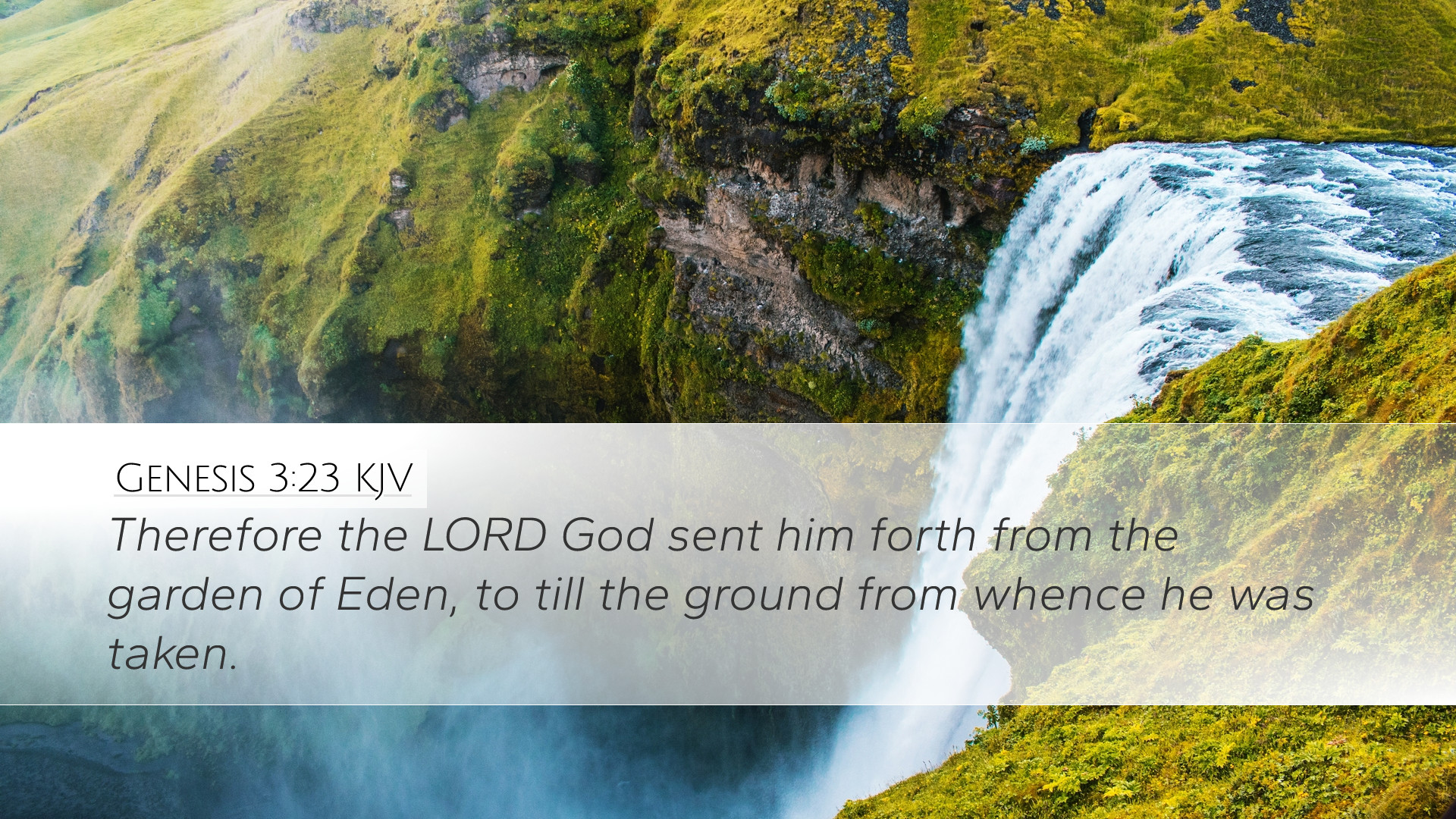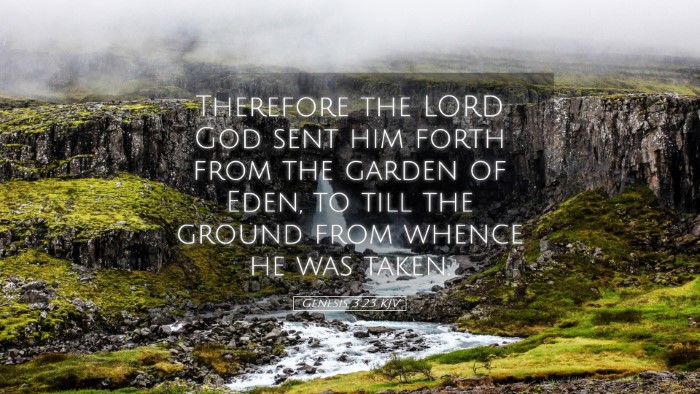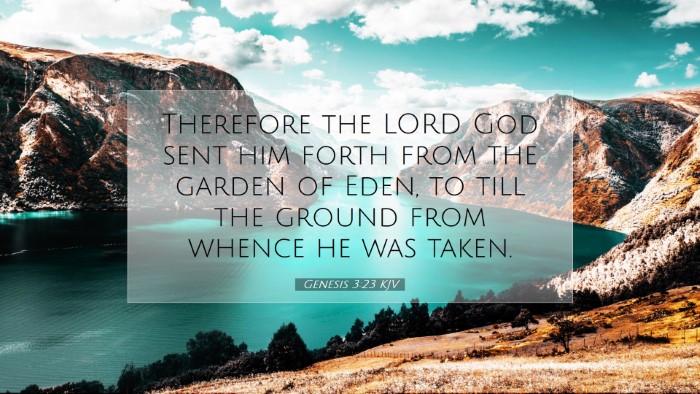Commentary on Genesis 3:23
Bible Verse: "Therefore the LORD God sent him forth from the garden of Eden, to till the ground from whence he was taken." - Genesis 3:23
Introduction
This critical verse occurs in the narrative of humanity's fall and expulsion from Eden. It marks a significant transition in the human experience, shifting from divine intimacy to alienation due to sin. In examining Genesis 3:23, we draw insights from public domain commentaries to unravel its theological and practical implications.
Contextual Background
The preceding chapters outline the creation narrative, humanity's original state of innocence, and the tragic decision to disobey God. Here, we find ourselves at a pivotal moment: Adam and Eve, after succumbing to temptation, face the grim consequences of their actions. This verse encapsulates the act of divine judgment and mercy intertwined.
The Divine Decision
Matthew Henry emphasizes that God's action to expel Adam from Eden serves as both judgment and preservation. The garden symbolizes perfect communion with God, but sin altered that relationship irreparably:
- Judgment: Henry notes that Adam's disobedience merits this expulsion, reflecting the seriousness of sin.
- Preservation: He suggests that if Adam were allowed to eat from the Tree of Life in a sinful state, it would have resulted in eternal separation from God.
The Nature of Work Post-Eden
Albert Barnes illustrates the transformation of Adam's role after leaving the garden. Originally tasked with caretaking a bountiful creation, his work now becomes laborious and fraught with struggle:
- From Ease to Toil: Barnes underscores that tilling the ground post-expulsion symbolizes a shift to a life of hardship—a direct consequence of sin.
- Penance: This labor can also be seen as an act of penance and an opportunity for Adam to demonstrate faithfulness amidst difficulty.
Theological Reflections
Adam Clarke delves into the theological implications of this verse, highlighting the relationship between sin, judgment, and God's overarching plan for redemption:
- Sin's Cost: Clarke observes that Adam's banishment is a vivid reminder of sin’s devastating impact on the divine-human relationship.
- Hint of Redemption: He also points out that God's choice not to abandon creation entirely hints at the future promise of redemption through Christ.
Implications for Humanity
This verse serves as a profound commentary on the human condition. The expulsion from Eden is not just a historical event but reflects our ongoing struggle with sin and alienation from God. Henry, Barnes, and Clarke collectively highlight three core implications:
- Awareness of Sin: Understanding the gravity of sin is crucial for spiritual growth.
- Life’s Labor: All must engage in labor as a part of living in a broken world, learning to navigate trials with faith.
- Hope for Redemption: Amidst the dire state of humanity, there remains the promise of restoration through God's grace.
Conclusion
Genesis 3:23 encapsulates the depth of the human experience post-fall. Through the insights from commentators such as Matthew Henry, Albert Barnes, and Adam Clarke, we glean important lessons on sin, divine justice, the nature of human labor, and the faint verses of hope amidst despair. This poignant verse beckons us not only to reflect on the consequences of our disobedience but to seek the redemptive path laid before us through Christ.


